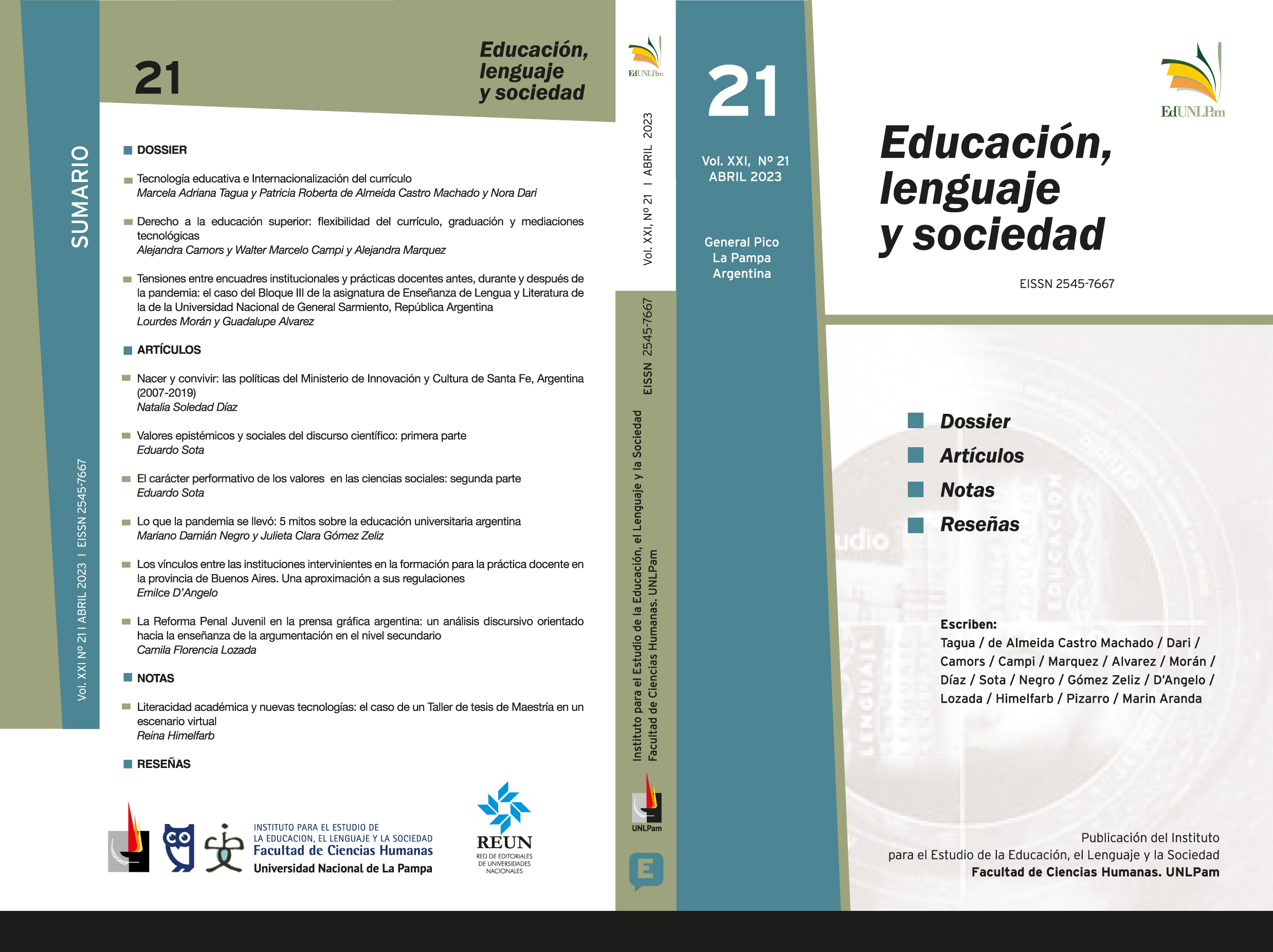Right to higher education: flexibility of the curriculum, graduation and technological mediations
Keywords:
higher education, curriculum, pedagogical mediations, graduationAbstract
In an international context of increasing pressure from transnational organizations such as the World Trade Organization through the General Agreement on Tariffs and Trade (GATT), Argentine higher education is characterized in its historical development as a citizen’s right and not as a transnational commodity. The history of Argentine higher education is the history of access to a right, and educational technology and distance education have contributed and continue to contribute solutions to this mission. It is because of its status as a right that higher education institutions must invest all the means at their disposal to ensure that students have access to it without any kind of restriction, as regulated by the Higher Education Law. They must also guarantee the graduation of their students so that access to the right is not an empty discourse. One tool available for this purpose is curricular flexibilization, which makes it possible to respect the motivations and pace of each student together with an autonomous administration of time and space that is not expulsive. The autonomous management of the curriculum is also enhanced by the use of technological mediations that make it possible to articulate physical presence with virtual presence.






21.png)







